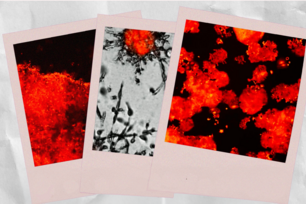Multiple myeloma cells get what they want
CAMBRIDGE, Mass. – Researchers at Whitehead Institute for Biomedical Research have identified a protein in multiple myeloma cells, called DEPTOR, that indirectly activates a signaling pathway commonly turned on in cancer cells. Known as the PI3K/PTEN/Akt pathway, this signaling pathway controls cell survival, and when altered, prevents cancer cells from dying.
The researchers’ results are reported in the May 29 issue of Cell.
Although scientists had known that the PI3K/PTEN/Akt pathway was commonly activated in multiple myeloma cells, few specific activating mechanism had been identified. Unlike many other cancer cells, multiple myeloma cells do not appear to have a high frequency of mutations or alterations within this important pathway that keep it active.
Multiple myeloma is cancer of the plasma cell, a type of immune system cell that creates antibodies for fighting disease and infection. Approximately 20,000 people are diagnosed with multiple myeloma yearly in the United States. The disease currently does not have a cure and most patients die within three years of diagnosis.
Pursuing DEPTOR’s activity in multiple myeloma cells, the lab of Whitehead Member David Sabatini first identified that DEPTOR interacts with mTOR (mammalian target of rapamycin), a signaling pathway with two branches. One branch supports protein creation and the other enhances cell survival by stimulating the PI3K/PTEN/Akt pathway.
“In most cancers, DEPTOR expression is down, which usually makes sense because DEPTOR decreases the mTOR activities--protein production and cell survival--which are good for cancer cells,” says Timothy Peterson, a Sabatini research assistant and first author on the Cell paper. “Here in multiple myeloma cells, DEPTOR is expressed at very high levels, so we thought that there had to be something useful about this high expression for these cells.”
To gauge DEPTOR’s importance for multiple myeloma cells, Peterson blocked the protein’s expression in some cells. Within seven days, the multiple myeloma cells stopped proliferating and died, indicating that DEPTOR is necessary for these cancer cells to survive.
Sabatini has a theory about what is happening in the cells. It goes back to normal plasma cells’ job in the body, which is to create vast amounts of antibodies that are made from proteins. Even after becoming cancerous, multiple myeloma cells try to maintain their antibody production.
“Multiple myeloma cells are overstressed by the protein production required for both antibody production and for cell proliferation,” says Sabatini. “They want the advantage of cell survival from the PI3K/PTEN/Akt pathway, but not the downside of increased protein production that comes with activating both mTOR branches.”
So, the multiple myeloma cells seem to use massive amounts of DEPTOR to exploit a feedback loop that effectively shuts down the mTOR pathway but keeps the PI3K/PTEN/Akt pathway and cell survival turned on perpetually.
“Hypothetically, DEPTOR may be a way for the cancer cell to get what it wants-- enhanced survival--without the cost of additional protein production,” says Sabatini, who is also an Associate Professor of Biology at MIT and an Investigator of the Howard Hughes Medical Institute.
For Peterson, the difference in DEPTOR’s role in various cancer types speaks to the uniqueness of each cancer. “We have this assumption that all cancer cells have the same demands and really want the same things,” he says. “But I would say this is an argument for that not being the case.”
* * *
David Sabatini’s primary affiliation is with Whitehead Institute for Biomedical Research, where his laboratory is located and all his research is conducted. He is also a Howard Hughes Medical Institute investigator and a professor of biology at Massachusetts Institute of Technology.
* * *
Peterson, T. et al. "DEPTOR in an mTOR Inhibitor Whose Frequent Overexpression in Multiple Myeloma Cells Promotes their Survival." Cell, May 29, 2009.
Topics
Contact
Communications and Public Affairs
Phone: 617-452-4630
Email: newsroom@wi.mit.edu


